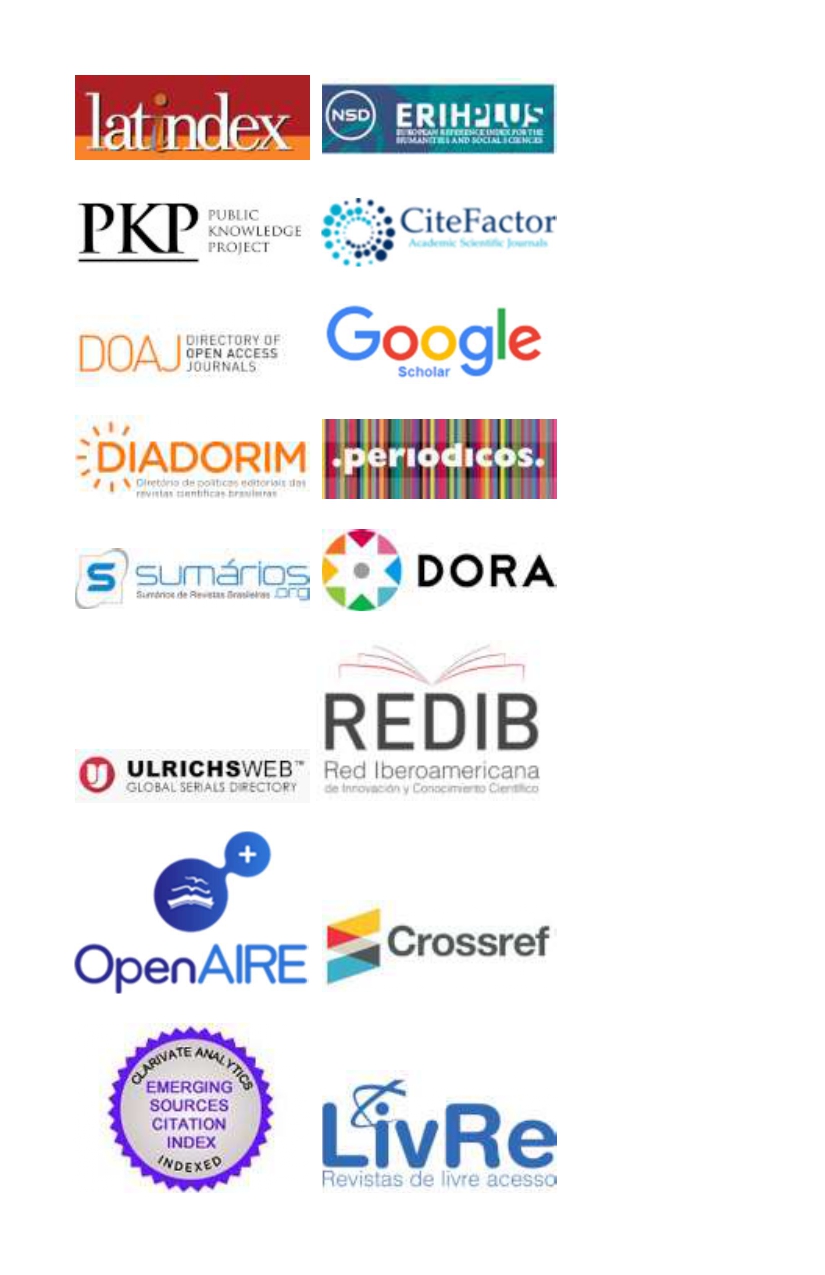CONSTITUCIONALISMO DEMOCRÁTICO E REVISÃO JUDICIAL RESPONSIVA NO BRASIL
Palavras-chave:
CONSTITUCIONALISMO DEMOCRÁTICO, REVISÃO JUDICIAL RESPONSIVADownloads
Referências
Oscar Vilhena Vieira, ‘Constitutional Resilience’ (Keynote Address, Heyman Center for the Humanities, 21 February 2025).
Id.
David Landau, ‘Abusive Constitutionalism’ (2013) 47 UC Davis Law Review 189. See also Rosalind Dixon and David Landau, Abusive Constitutional Borrowing: Legal Globalization and the Subversion of Liberal Democracy (Oxford University Press, 2021).
See Juliano Benvindo, ‘Interpreting Unamendable Clauses: Brazil’s New Precedent on the Presumption of Innocence’, ICONnect (Blog Post, 29 February 2016) <https://www.iconnectblog.com/interpreting-unamendable-clauses-brazils-new-precedent-on-the-presumption-of-innocence/>.
See, in this symposium, Emilio Peluso Neder Meyer, ‘Responsive Constitutional Jurisdiction in the Supreme Federal Court: A Trend Underway?’.
Ibid; Thomas Bustamante, Emílio Peluso Neder Meyer and Evanilda De Godoi Bustamante, ‘Luís Roberto Barroso’s Theory of Constitutional Adjudication: A Philosophical Reply’ (2021) 69(4) American Journal of Comparative Law 798.
Rosalind Dixon, Responsive Judicial Review: Democracy and Dysfunction in the Modern Age (Oxford University Press, 2023) ch 3 (‘RJR’).
Samuel Issacharoff, Fragile Democracies: Contested Power in the Era of Constitutional Courts (Cambridge University Press, 2015).
Vilhena Vieira (n 1).
See Vicki C Jackson and Yasmin Dawood, Constitutionalism and a Right to Effective Government? (Cambridge University Press, 2022).
On the duty to supervise, see Gillian E Metzger, ‘The Constitutional Duty to Supervise’ (2015) 124(6) Yale Law Journal 1836.
Dixon, RJR (n 7) ch 5.
David Landau and Rosalind Dixon, ‘Abusive Judicial Review: Courts Against Democracy’ (2020) 53(3) UC Davis Law Review 1313.
Rosalind Dixon, ‘Responsive Judicial Review in Central & Eastern Europe’ (2023) 48 Review of Central and East European Law 375 (‘RJR in Europe’).
See Miguel Godoy’s contribution in this symposium.
Id.
On these modalities, see Philip Bobbitt, Constitutional Interpretation (Basil Blackwell, 1991).
Dixon, ‘RJR in Europe’ (n 14).
See Luís Roberto Barroso, ‘Countermajoritarian, Representative and Enlightened: The Roles of Constitutional Courts in Democracies’ (2019) 67 American Journal of Comparative Law 109.
See Frederick Schauer, ‘The Court’s Agenda: And the Nation’s’ (2006) 120(1) Harvard Law Review 4.
Dixon, RJR (n 7) 213–14.
Estefânia Maria de Queiroz Barboza, Judicial Precedents and Legal Certainty: Foundations and Possibilities for Brazilian Constitutional Jurisdiction (Juruá, 2014); Estefânia Maria de Queiroz Barboza and Gustavo Buss, ‘The Role of Constitutional Jurisdiction in the Protection of Social Rights in Brazil’ in Gorki Gonzales Mantilla (ed), Constitutional Culture and Living Law: Writings in Honour of Professor Roberto Romboli (Center for Constitutional Studies of the Constitutional Court of Peru, 2021) 761; Júlia Cani, ‘Legal Theses in ADI: A Proposal for Expanding Binding Effect?’ (JOTA, 8 May 2018) <https://www.jota.info/opiniao-e-analise/artigos/teses-juridicas-em-adi-proposta-para-expansao-do-efeito-vinculante-08052018>.
Daniel Bogea and Lívia Guimarães, ‘Rotating Chief Justices in a Democracy under Stress: The Brazilian Supremo Tribunal Federal under Bolsonaro’ (2025) 23(1) International Journal of Constitutional Law 263.
Rosalind Dixon and Elisabeth Perham, ‘Theorising Constitutions – Comparatively: On Inductive, Illustrative and Reflexive Constitutional Comparison’ (Presentation, ICON-S ANZ Conference, 30 August 2024).
Dixon, RJR (n 7) 145.
Id 161–5.
Rosalind Dixon, ‘Responsive Judicial Review: An Overview’ (2024) 49(2) Australian Journal of Legal Philosophy 146.
See See Miguel Godoy’s other writing on this topic.
Tailma Santana Venceslau, ‘“A Problem of Time and Place”: Decision-Making Times and Interactions between the In-Person and Virtual Plenaries of the STF (2020-2022)’ <https://www.encontro2024.anpocs.org.br/arquivo/downloadpublic?q=eyJwYXJhbXMiOiJ7XCJJRF9BUlFVSVZPXCI6XCIyNTU3XCJ9IiwiaCI6ImUwZDIxYzQ3MmRkMjBhYzRhYzQxNzQxOGRkN2E4NzBkIn0%3D>.
Rosalind Dixon, ‘Constitutional Drafting and Distrust’ (2015) 13(4) International Journal of Constitutional Law 819. See also Rosalind Dixon, ‘Strong Courts: Judicial Statecraft in Aid of Constitutional Change’ (2021) 59(2) Columbia Journal of Transnational Law 298 (‘Strong Courts’); Dixon, RJR (n 7) ch 8.
Dixon, ‘Strong Courts’ (n 31); Dixon, RJR (n 7) ch 8.
David Landau and Rosalind Dixon, ‘Constraining Constitutional Change’ (2015) 50 Wake Forest Law Review 859.
See David Landau and Rosalind Dixon, ‘On Constitutional Failure, Transformative Constitutionalism, and Utopianism’ (2023) 21(5) International Journal of Constitutional Law 1549, and citations therein.
See, eg, Michaela Hailbronner, ‘Transformative Constitutionalism: Not Only in the Global South’ (2017) 65 American Journal of Comparative Law 527; Daniel Bonilla Maldonado (ed), Constitutionalism of the Global South: The Activist Tribunals of India, South Africa, and Colombia (Cambridge University Press, Cambridge, 2013); Upendra Baxi, ‘Preliminary Notes on Transformative Constitutionalism’ in Oscar Vilhena, Upendra Baxi and Frans Viljoen (eds), Transformative Constitutionalism: Comparing the Apex Courts of Brazil, India and South Africa (Pretoria University Law Press, 2013) 19.
David Landau, ‘Courts and Support Structures: Beyond the Classic Narrative’ in Erin F Delaney and Rosalind Dixon, Comparative Judicial Review (Edward Elgar, 2018) 226.
Cite. See also Daniel B Phd; Rosalind Dixon, ‘Constitutional Design Two Ways: Constitutional Drafters as Judges’ (2017) 57(1) Virginia Journal of International Law 1.
Compare in this context Dinesha Samararatne, ‘Sri Lanka’s Guarantor Branch: Constitutional Resilience by Stealth?’ in Tarunabh Khaitan, Swati Jhaveri and Dinesha Samararatne (eds), Constitutional Resilience in South Asia (Hart Publishing, 2023).
Downloads
Publicado
Como Citar
Edição
Seção
Licença
Copyright (c) 2025 Rosalind Dixon

Este trabalho está licenciado sob uma licença Creative Commons Attribution-NonCommercial 4.0 International License.
Autores que publicam nesta revista concordam com os seguintes termos:
- Autores mantém os direitos autorais e concedem à revista o direito de primeira publicação, com o trabalho simultaneamente licenciado sob a Licença Creative Commons Attribution que permite o compartilhamento do trabalho com reconhecimento da autoria e publicação inicial nesta revista.
- Autores têm autorização para assumir contratos adicionais separadamente, para distribuição não-exclusiva da versão do trabalho publicada nesta revista (ex.: publicar em repositório institucional ou como capítulo de livro), com reconhecimento de autoria e publicação inicial nesta revista.
- Autores têm permissão e são estimulados a publicar e distribuir seu trabalho online após a publicação na revista.






